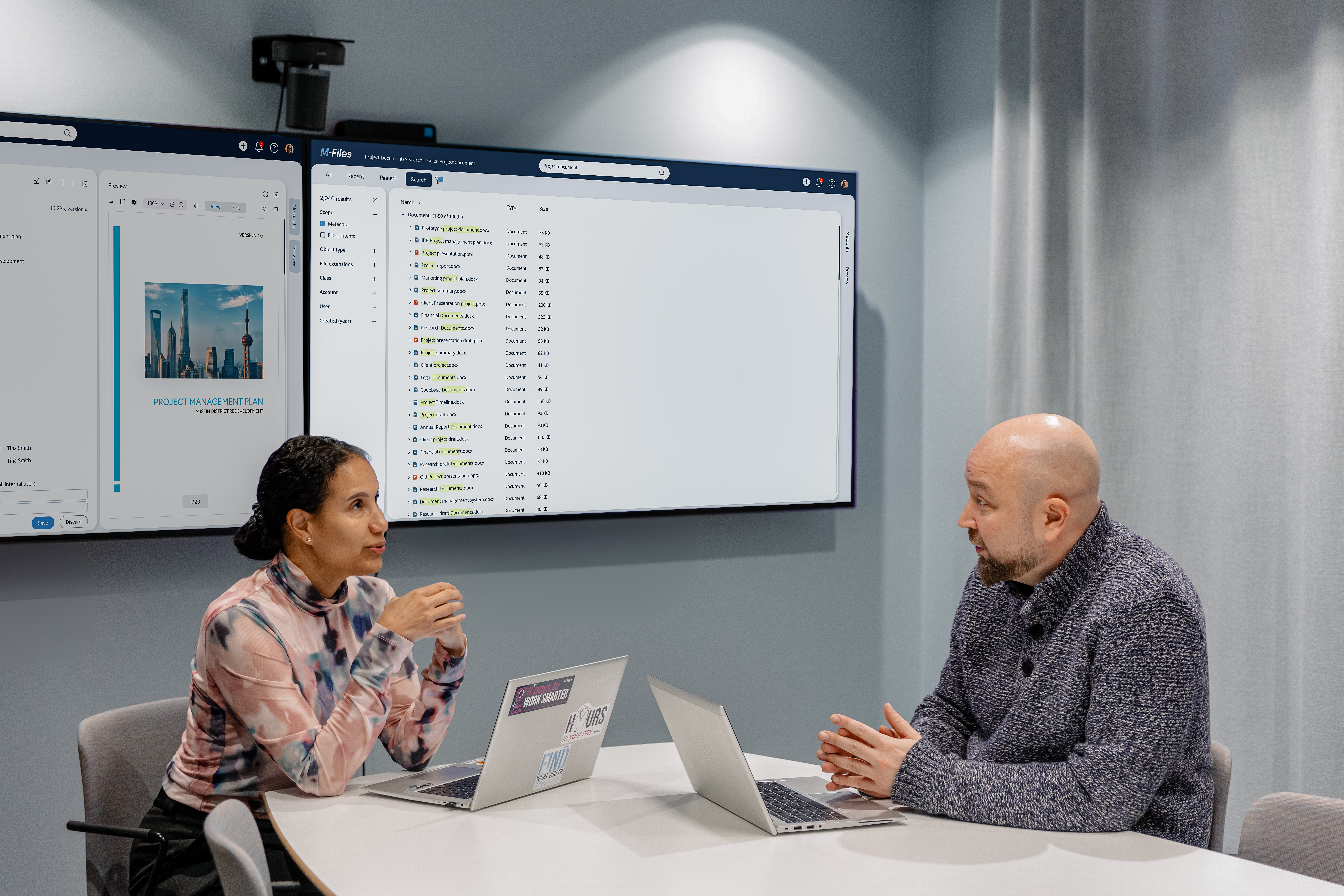Centralize your project documentation to maintain a unified source of truth. Ensure that you complete projects within budget, on schedule, and to high-quality standards. Organize and enhance document management to meet stakeholder requirements.
Streamline processes with automated workflows and maintain progress tracking with detailed document-level visibility. Boost customer engagement by ensuring all team members have access to accurate and relevant project data.

Join us for an exclusive webinar to learn how Toll Brothers used M-Files to modernize its project information management and streamline operations across multiple locations, improving efficiency and collaboration.
Jari Åberg, Vice President of Digitalization, Elomatic

Managing a small project with a tight-knit team might seem easy, even without specialized tools. However, as projects grow and team members change, keeping track of stored information and overall project status becomes a challenge.
Manual, folder-based approaches simply don’t scale—especially when external collaborators like customers, partners, or subcontractors get involved. The result? Delays, inefficient project delivery, and strained customer relationships.
As folder structures grow deeper, locating the right document becomes a frustrating, time-consuming task. Employees waste valuable time searching for files or deciding where to save new ones, leading to rework, duplication, and lost productivity.
When document versions are tracked manually or through inconsistent naming conventions, the risk of using outdated files increases. This can lead to costly errors, misinformed decisions, and broken commitments.
Traditional document repositories offer no built-in way to track project progress or document status. Teams resort to inconsistent naming conventions and separate trackers, making it difficult to get a clear, up-to-date view of ongoing work.
Sharing files with external collaborators often requires separate systems, leading to more work, duplicate files, version control challenges, and reduced visibility. These inefficiencies slow projects down and increase the risk of miscommunication.
Automatically classify and organize information to meet the needs of both internal and external stakeholders. Define key project criteria like phases, tasks, or disciplines, and leverage advanced classification techniques, such as AI-powered data organization, to optimize workflows. Integrate workflow automation and document-level status tracking for a real-time view of project progress. Seamlessly incorporate external collaboration into everyday tasks.

Automated document naming, organization, and classification make it easy to save and search files, offering multiple navigation options and hierarchies tailored to different needs.
Built-in lifecycles always display document status, while views eliminate the need for manual tracking. The combined status of even the most complex projects becomes easily understandable.
Utilize collaboration portals to automatically exchange information with external stakeholders, maintaining full control and audit trails of your data.
While views provide insights, automated version control, workflows, and task assignments help drive action. File naming, conversions, approvals, and publishing are all automated through workflows.
More than 5,000 companies rely on M-Files to manage their documents every day.




